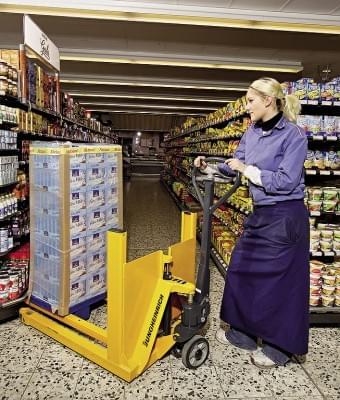Rotomoulding: excellent performance
Although plastic is public enemy No. 1 in the eye of many due to environmental considerations, international packaging trends reveal that this material type is developing the most dynamically.
There is great demand for flexi-wall packaging and in the food sector for various foils and bags are very popular – these are made combining different materials, they have excellent characteristics and meet environmental requirements. In Hungary designs are improving and flexo-printing has started its conquest. Zsolt Krajcár, managing director of Krajcár Kft. told our magazine that one of the main market trends is reducing material use per packaging, and small quantities have to be manufactured efficiently. Companies need to increase their productivity and invest in machinery if they want to stay in the game. László Helmajer, production and commercial director of Pro-Form Kft. opines that up until the last decade producers’ goal was to sell small quantities in big packaging (e.g. chocolate), but in the recent past this trend turned around: they want to squeeze relatively large quantities into small packaging. One of the world trends in packaging is improving food safety and ensuring longer shelf life for products. The plastic segment plays a leading role in this. Márta Enyedi, market development leader of Sealed Air Magyarország Kft. informed us that lately it became very important to manufacture theft-proof packaging solutions, which at the same time are also perfectly sealed so that no leakage occurs. She thinks that the sustainable and cost-efficient packaging technology trends that are already being used in developed countries will soon constitute a break-out point for Hungarian packaging companies as well. Ms Enyedi reckons that one of the key issues in the industry is the packaging of poultry products. In Western Europe traditional stretch foil packaging has already been replaced with protective atmosphere or vacuum technologies. Sealed Air’s expert forecasts a boom in the packaging of ready meals. Environmental innovation is of utmost importance in the plastic packaging segment. Major manufacturers are trying to find ways for substituting fossil-based raw materials with biologically degradable plastics. The problem is that the biodegradable polymers used in rich counties are expensive and raise moral issues, too: these new-type plastics are made from biomass that could also be utilised to make food. Mr Helmajer told us that manufactures ask minimum 40-50 percent more for biologically degradable packagings. He reckons that multinational companies will make big progress in using them in 5-10 years. Significant progress has already been made in the domain of collecting and recycling of plastic packagings – in part due to increasingly strict state requirements. For instance the technology for manufacturing packaging foil from washed and ground PET bottles is used widely in Hungary too. As for the regulatory background, Antal Reményi, managing director of Reményi Packaging Technology Kft. is of the opinion that the environmental product fee law of 2012 motivates companies to import packaging materials directly from foreign manufacturers and it increases the number of those who operate in the grey/black economy. According to the Hungarian Association of Packaging and Materials Handling (CSAOSZ), some of the companies feel that the administrative work related to the environmental product fee has become more complex than managing VAT matters – they have to invest in expensive software or recruit new personnel for this task. Export’s significance is growing in the plastic packaging segment, but domestic use is also on the increase. It is noteworthy that in the past few years the FMCG sector’s significance dropped. Market players sense strong price pressure from the food industry and this narrows down their innovation opportunities. Mr Krajcár thinks that the government should also treat the packaging sector as a strategic industry – just like the food industry is treated – since packaging is the primary marketing tool that helps selling food products.
Related news
Related news
The Hungarian Food Book is 50 years old
🎧 Hallgasd a cikket: Lejátszás Szünet Folytatás Leállítás Nyelv: Auto…
Read more >ZEW: Economic expectations worsened in Germany and the euro area in February
🎧 Hallgasd a cikket: Lejátszás Szünet Folytatás Leállítás Nyelv: Auto…
Read more >







